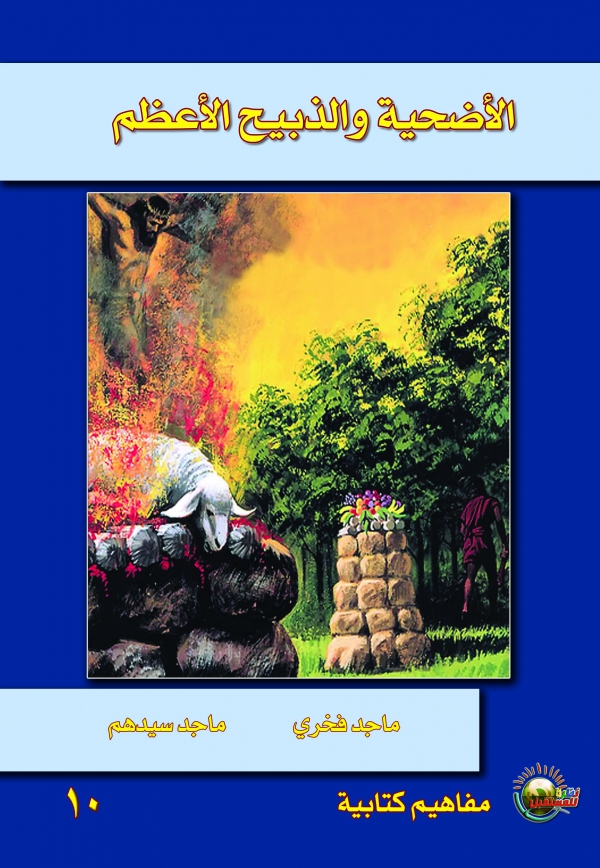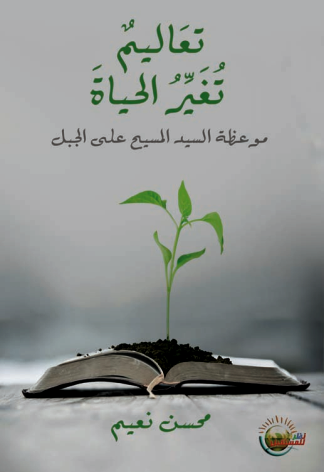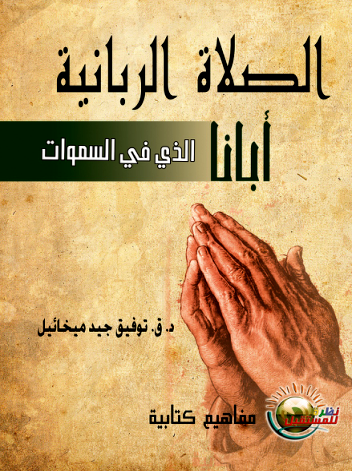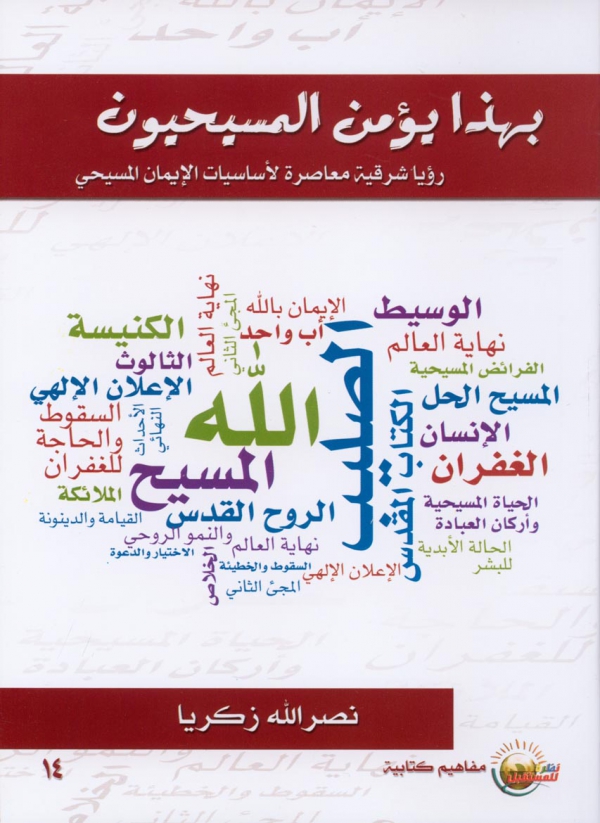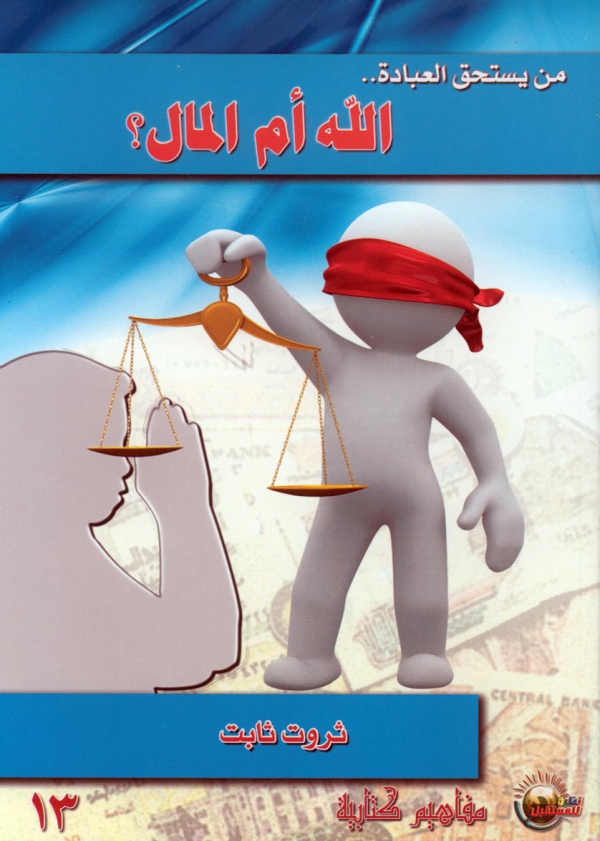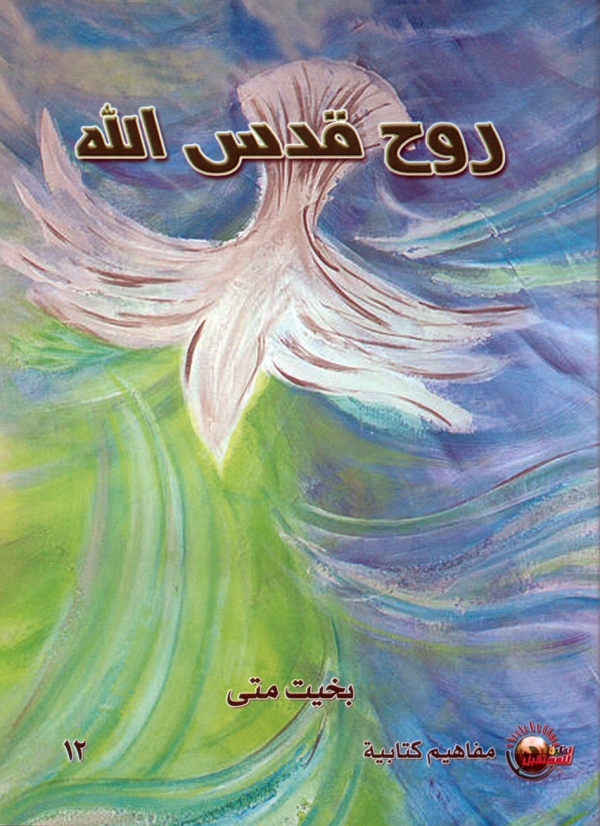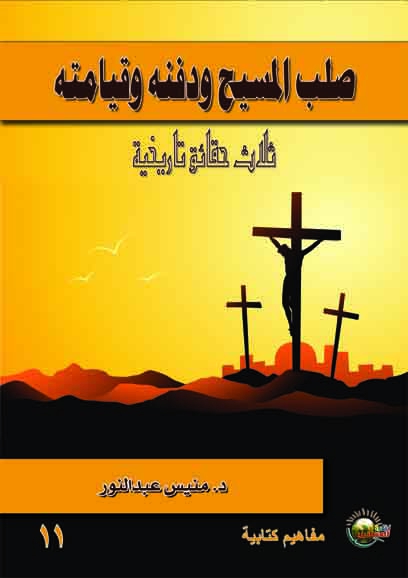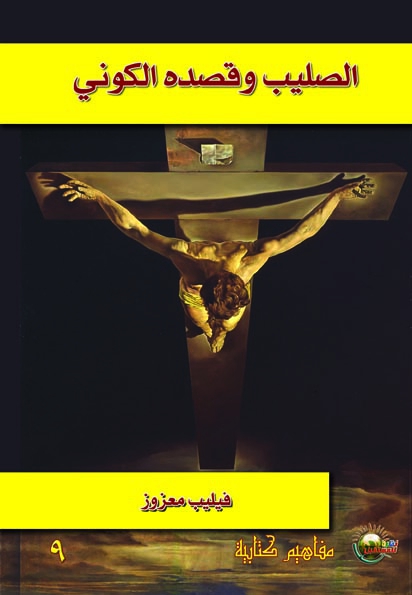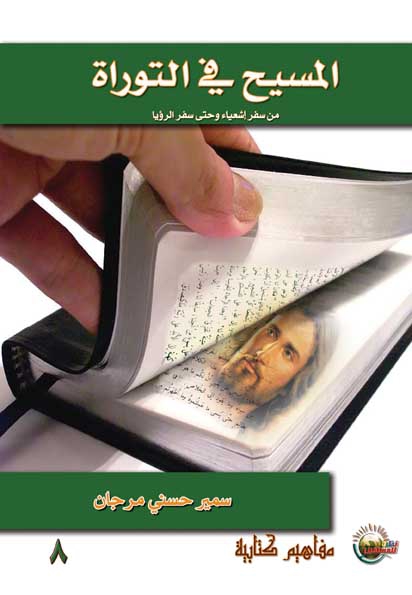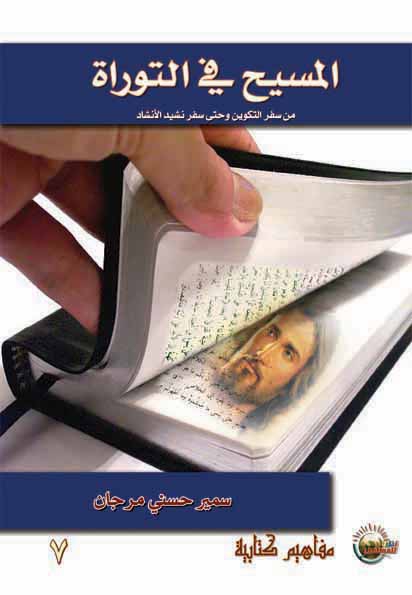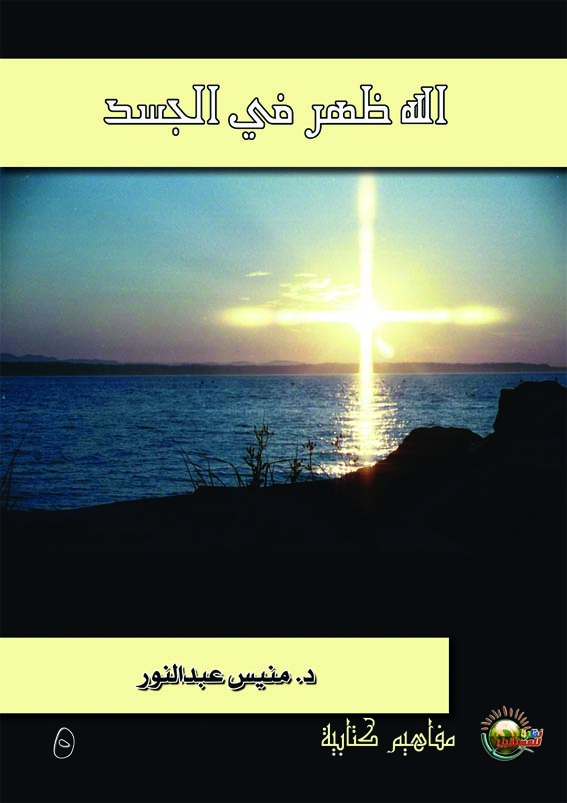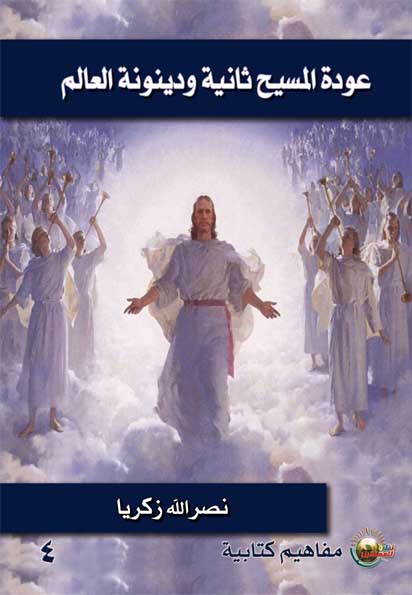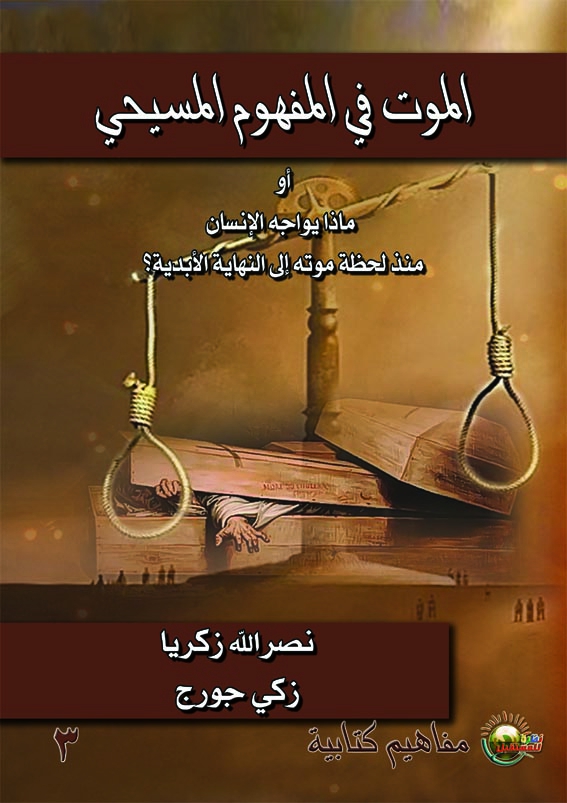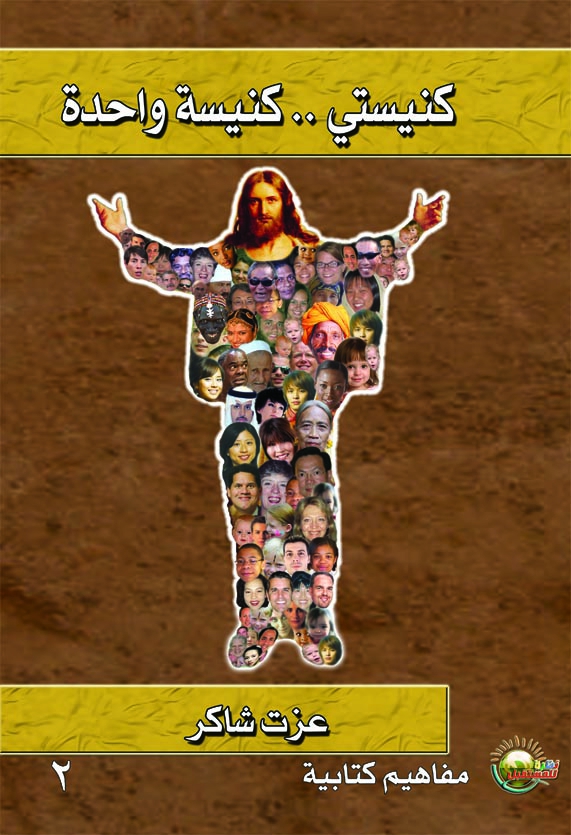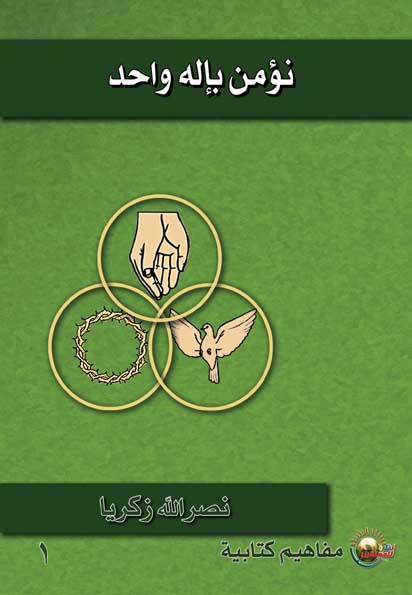Biblical Concepts
There is no doubt that we are all prone to stumbling in our spiritual life due to the wrong concepts of theology which we have formed in our minds. This series is designed to discuss key spiritual concepts in a way that reveals and clarifies biblical truths and is comprehensible to the contemporary Arabic mind.
Sacrifice And The Greatest Sacrifice
الكاتب: Maged Fakhry and Maged Sidhom
الناشر: Vision For Future
The book is of 150 pages of medium size, and divided into four parts as follows:
Part I: The history and meaning of sacrifices. Through this part, authors introduce us to:
First: The history of sacrifices, which includes:
- Sacrifices in Brahmanism and Indians
- Sacrifices in Pharaonic Egypt, Persians and Babylonians
- Sacrifices in Chinese worship; sacrifices for Greeks and Romans
- Sacrifices and offerings during the Jaahiliyyah (pre-Islamic epoch); sacrifices to the devil, slaughtering for demons.
Next, the authors touch on a very important question, which is, "Why sacrifices, and how did they start?" In an attempt to answer this question, they point out that "Intellectuals, anthropologists, sociologists, and historians of religions assumed different theories about the origin, significance of, and pervasiveness of offering sacrifices among all peoples, regarding it as a religious phenomenon whose importance resides in its being: a gift to thank God, a meal in companionship with God, and an act of sanctification, propitiation, and atonement." These theories and analyses are summarized in the following points:
1- Psychological theory refers to the purpose of lessening fear by offering sacrifices to a god.
2- Magic theory suggests that the extermination of the sacrifice causes the release of magical power in favor of the one who presented the offering.
3- Scientific theories generally consider the offering of sacrifices to be a human invention, and an attempt to enter into an emotional relationship with God, thereby honoring Him, propitiating Him, or sharing food with Him as a symbol of entering into a covenant with Him.
4- Some cults believe in the presence of a spirit of God in certain animals.
5- The gift theory was launched in 1871 by Taylor, in which he says that the sacrifice is a mere gift or a donation. He reduced all offerings and sacrifices to a utilitarian concept and to a mechanism of exchange or bribery.
Bible scholars, have their own theory, saying that the offering of sacrifices was preordained by God from the beginning. This theory is built on the foundation of what is revealed in Genesis 4, where we read: "So it came about in the course of time that Cain brought an offering to the LORD of the fruit of the ground. Abel, on his part also brought of the firstlings of his flock and of their fat portions. And the LORD had regard for Abel and for his offering; but for Cain and for his offering He had no regard" (Genesis 4: 3-5).
The preference of God revealed here addresses the attitude of the heart, judging Cain from the inside. It is impossible that would God refuse an offering presented to Him, so long as it was presented with a pure heart. If He had accepted only blood sacrifices, He wouldn't have accepted any other offering as recorded in Leviticus.
This section of the book concludes with the authors sharing a definition of sacrifices and offerings.
Part Two: Sacrifices in the Old Testament
In this section, the authors address the following points:
- Sacrifices at the time of the first fathers.
- Sacrifices at the time of Moses and The Law.
- Sacrifices from time of the Judges until the prophets, and after the Babylonian captivity.
Sacrifices were not good enough to accomplish redemption because the ransom which serves to atone a human being must be equivalent in value to completely compensate for the man. The Human soul is immortal and has sublime literal and mental properties. While the animal may be of blood, its spirit is not immortal, and it lacks the human properties which would make it good enough to redeem a man.
The Lord commanded sacrifices in order to reveal to man the seriousness of his sin, and its punishment, by tangible means, which human minds could assimilate. He pictured that death is the wages of sin in an act that they could see with their own eyes. The image of the sacrifice and the burning of animals made it obvious that God was declaring to sinners that they deserved punishment. In connection with this was the fact that they were supposed to be in this animal's place, but God was kind to allowed for their atonement.
Part Three: The ultimate sacrifice.
The subject of this section begins with the authors describing the evolution of human thought, morally and spiritually, and men increasingly realizing the impurity of their sin, its heinous impact, and the enormity of its offense before the infinite God. Men also realized that animal sacrifices do not carry in themselves the meaning of the ransom that was preordained by God for salvation from the penalty of sin. Expanding further on these themes, the authors introducing the following key points:
- The inadequacy of sacrifices of the Old Testament
- Substitutionary
- The adequacy and power of the ultimate sacrifice.
From here, the authors are able to conclude the study by tackling the subject of how sacrifices are accepted by God in the present, addressing four final themes:
First: The sacrifice of the accepted life of devotion: (alluded to in Romans 6:13, 16, 19; Romans 12:1-3; 2 Corinthians 5: 14.15).
- Consecration to the Lord is built on love. No one can devote himself unless he feels the love of the Lord; he needs to experience the love of the Lord before he can devote his life to Him.
- Consecration to the Lord is also built on the understanding of divine privilege.
After being surrounded by the love of The Lord; the believer realizes he was bought at a great price. He also needs to take a further step of emptying himself of everything, to be entirely consecrated to the Lord. Consecration is much more than love, and it is more than being bought. It is the behavior that follows love. A person, who devotes himself to the Lord separates himself from everything in this world, from all of his old masters, and only does the will of his Master. He dedicates himself totally to doing the will of his Master. This is what really consecration means.
Second: The sacrifice of worship (prayer and praise). Scripture says in (Psalm 141: 2) " May my prayer be set before you like incense; may the lifting up of my hands be like the evening sacrifice." And in (Hebrews 13: 15)" therefore, let us continually offer to God a sacrifice of praise—the fruit of lips that openly profess his name.
- Prayer as an acceptable worship sacrifice now:
When we give glory and exaltation to God, we don't add to God something new that would please and satisfy Him as people do to kings, Emperors and presidents. We neither satisfy Him as people do with earthly authorities. Rather, we worship Him in response to what God has done for us and is still doing. God made us in his image so we find in ourselves the desire to worship and grow in His likeness. The spirit of God who works in us leads us to worship the source of our existence, who overwhelmed us by the riches of His Grace.
- Praise as an acceptable worship sacrifice now:-
Praise is the first utterance of reverence and love of God. It has more than one facet of prayers' aspects. It is a way of life. Praise helps the believer to glorify God and enjoy Him forever. It is the main purpose of the worshiper of God.
Third: The sacrifice of distribution. "And do not forget to do good and to share with others, for with such sacrifices God is pleased." Hebrews 13:16. Real faith has true fruits; and among these is the fruit of good deeds, doing good and sharing fellowship are sacrifices which God is pleased with."
Fourth: The sacrifice of giving. The authors divide this section into three:
- First: Vows
- Secondly: offerings
- Third: Tithing
